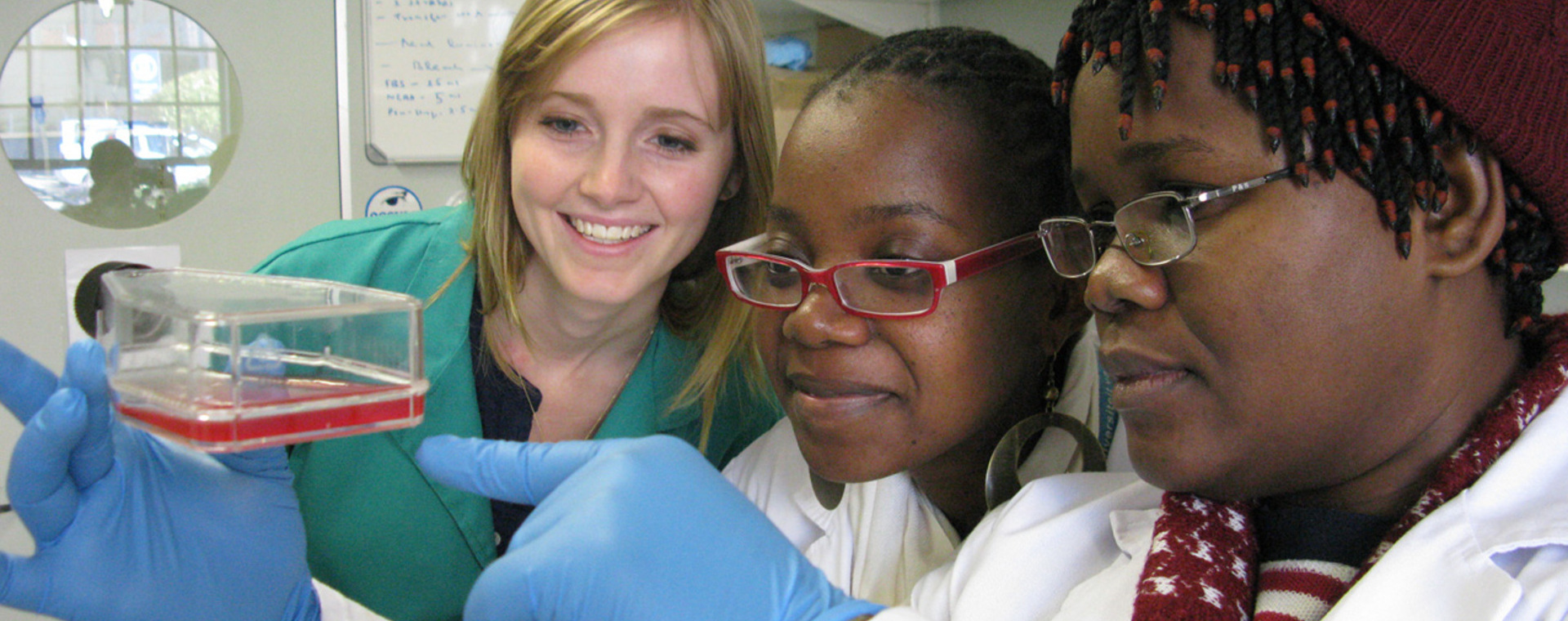21/09/2021
ICGEB promotes a rapid diagnostics laboratory programme in Africa
A pilot study on affordable and effective SARS-CoV-2 tests, coordinated by ICGEB, has been successfully extended in Africa
Il Parco
Rapid diagnosis of COVID-19 represents one of the pillars to contain the pandemic. Most testing techniques, however, are expensive and require well-equipped laboratories, which are seldom available in low- and middle-income countries (LMICs). The RT-LAMP test with colorimetric detection developed by New England Biolabs® (NEB®) represents a promising solution to this problem, but has not yet been tested widely to date. ICGEB, in collaboration with four African countries, has recently published a pilot study confirming its effectiveness. Thanks to constructive collaboration with NEB and financing from the Bill & Melinda Gates Foundation, ICGEB will now extend the project to five other countries in Africa, confirming its central role in helping LMICs obtain adequate tools and skills to address the COVID-19 pandemic.
The COVID-19 pandemic is a global threat, nonetheless it can provide enormous opportunities to accelerate research and development. However, it is essential that new developments are shared and disseminated around the world, in order to reduce the technological gap between countries. The recently published pilot study is a step in this direction: coordinated by ICGEB, it involved 1,657 individuals in four African countries – Nigeria, Ethiopia, Cameroon, Kenya – and Italy. The LAMP colorimetric kit developed by NEB can provide results directly in the field in about 30 minutes or in situations where diagnostic and research resources are limited. The aim of the study was to evaluate the effectiveness of this new method in several African laboratories. According to the results of the project, the RT-LAMP test is an extraordinary alternative to the current RT-qPCR gold standard for diagnosing SARS-CoV-2. The aim of the project was also to make local organisations autonomous in carrying out and applying this technology: in fact, these facilities carried out the tests in the field in coordination with ICGEB. The pilot study was recently published in The Lancet’s EClinicalMedicine journal. These exciting results have propelled the project to the next step, which will extend use of this kit to more countries through an effective technology transfer programme.
“We are thrilled with our results for two reasons”, states Lawrence Banks, General Manager at ICGEB, “First, due to the project’s success in coordinating and carrying out diagnostic activities in remote and distant areas, and secondly, because this has created a test bench for assessing needs and a long-term channel to provide technical assistance in the field, while simultaneously increasing local skills”.
The second phase of the project will focus on expanding the project’s network of beneficiary countries. This simple and inexpensive technology will be made available to these countries, together with direct scientific training and the necessary technical assistance. This will enhance the SARS-CoV-2 diagnostic testing capacity in an increasing number of laboratories in the target countries. This will have a long-term impact in terms of resources, skills and knowledge acquired, thus increasing responsiveness to COVID-19. These efforts will enable current and future pandemics to be controlled locally – the only way defeat them globally.